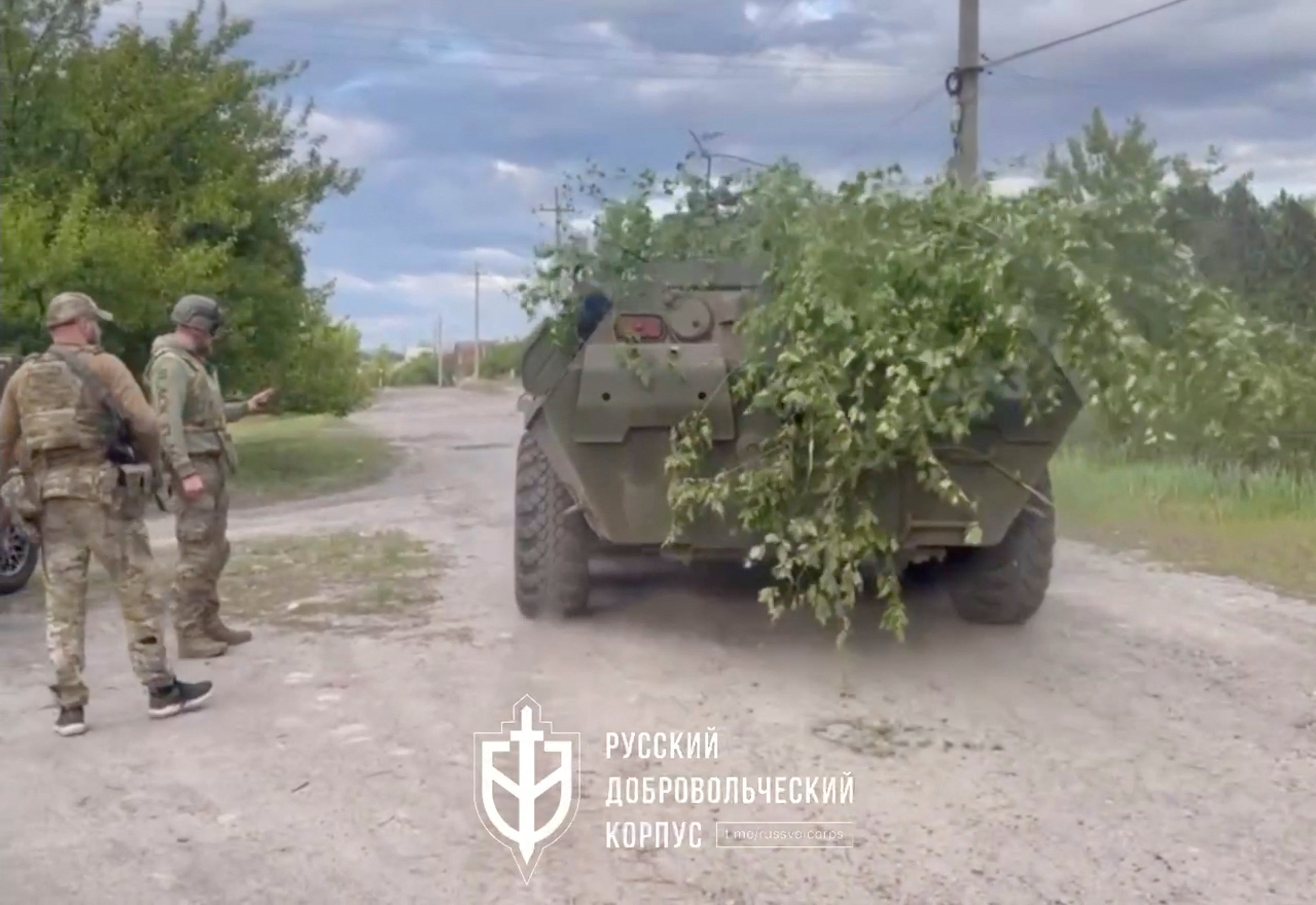Mapped: Russian forces advance in northeastern Ukraine as Putin opens up second front
Russian forces have occupied around 45 square miles of Ukrainian terriroty in the northeastern region of Kharkiv over the last four days, according to analysts

Your support helps us to tell the story
From reproductive rights to climate change to Big Tech, The Independent is on the ground when the story is developing. Whether it's investigating the financials of Elon Musk's pro-Trump PAC or producing our latest documentary, 'The A Word', which shines a light on the American women fighting for reproductive rights, we know how important it is to parse out the facts from the messaging.
At such a critical moment in US history, we need reporters on the ground. Your donation allows us to keep sending journalists to speak to both sides of the story.
The Independent is trusted by Americans across the entire political spectrum. And unlike many other quality news outlets, we choose not to lock Americans out of our reporting and analysis with paywalls. We believe quality journalism should be available to everyone, paid for by those who can afford it.
Your support makes all the difference.Russian forces have captured swathes of Ukrainian territory over the past four days after they opened up a second front in the northeast region of Kharkiv.
Beginning just after 5.30am on Friday, several small, infantry-led units, backed up by armoured vehicles, stormed across the Russia-Ukraine border on two next-door sectors.
Since then, according to DeepState, a Ukrainian open-source intelligence group that maps the war, Russia has captured around 45 square miles of territory. It is the first time they have launched an assault in the Kharkiv region since they were pushed out by Ukrainian forces in September 2022.
A Ukrainain colonel told The Independent that the situation has the “potential to develop dangerously very swiftly”, adding that they had deployed “one of our most experienced brigades” to reinforce positions in Kharkiv.
And Ukraine’s military said on Tuesday in its daily readout on the battlefield situation that the number of Russian attacks in the northern part of the Kharkiv region had decreased significantly overall.
They added that the situation had stabilised in one of the areas, around a small town called Vovchansk, from where thousands of Ukrainian citizens fled over the weekend. Around 200 civilians remain the city, according to the govenor of the Kharkiv region, Oleh Syniehubov.
But Russian officials have claimed that there are “street battles [ongoing] in the city”.
Vitaliy Ganchev, a Russian-installed official claiming to preside over the Kharkiv region, told the Kremlin-approved media outlet Tass on Tuesday morning that the western and northern parts of Vovchansk are now controlled by his forces.
DeepState, in their latest update on Telegram, confirmed that Russian forces have advanced near Vovchansk.
Their map suggests that Russian forces have advanced just under two miles from the border towards Vovchansk since the attack began last Friday. The Russians are currently contesting a village called Hatyshche.
Further north, almost directly above the Kharkiv region’s namesake capital, where some 1.3 million civilians are residing, Russian forces appear to have advanced more than four miles in as many days, capturing eight towns in the process.

They appear to be pushing through the villages of Lukyantsi and Hlyboke, which is situated near the dam of the Travyansky reservoir, a long body of water that runs up to the Russian border.
Ukraine’s military admitted on Tuesday they had to withdraw to new positions near the village of Lukyantsi due to heavy Russian air strikes.
While Ukrainian officials maintain that the attack will not reach Kharkiv city, the position of Russian forces now leaves the centre of the city within the range of the Kremlin’s artillery.
Senior Ukrainian military officials suggest the attack is an attempt by Russian forces to draw away soldiers from the battle to the southeast, while others have claimed the assault is intended to create a buffer zone between the two countries.
Mr Putin, after his sham re-election in March, suggested his forces could look to create this zone to make it harder for Ukraine to strike neighbouring Russian territory.
Join our commenting forum
Join thought-provoking conversations, follow other Independent readers and see their replies
Comments